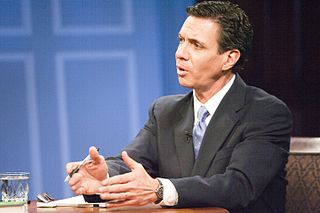A Quote by Ben Domenech
What we try to do at 'The Federalist' is to provide opinion and analysis that brings in a lot of different perspectives from across the Right. You'll see, a lot of times, us running an article that argues one side of something and then an article that argues the opposite.
Related Quotes
I remember researching a really complicated article and having trouble keeping track of all the different perspectives. I ended up drawing a diagram to help myself follow how the ideas were interrelated. I looked at the diagram when I had finished and thought, "Oh, maybe I don't need to write the article now - maybe I've done my job as a journalist. I can convey my understanding through the diagram."
I was kind of amazed because I first found out about blue boxes in an article in Esquire magazine labeled fiction. That article was the most truthful article I've ever read in my life... That article was so truthful, and it told about a mistake in the phone company that let you dial phone calls anywhere in the world. What an amazing thing to discover.
I'm not sure Riot Grrrl would have been as big a deal if the Internet had existed back then. Because there's so much stuff on the Internet. People could have been like, oh, whatever, I'm going to go look at pictures of Barbie vaginas, you know what I mean? There's so many different things on the Internet, you read one article and then you read something linked off that article and you go down the rabbit hole.
The normal citizen looked at us and saw a mixture of gangster, hippy, criminal and ape. Once somebody rang us up with a nice voice and asked if they could do a feature article on us about how a commune works. They came and asked us questions, took our photos and disappeared. One week later the article appeared and it said: 'This kind of community stinks and if this is the future of Germany then we need Adolf back.'
Now there is a big turnover in the galleries. The top galleries are getting better all the time. A lot of galleries just struggle along, then a new one comes along. There are certainly a great number of galleries. I think this argues well for the art but there are, of course, a lot of "phonies" in all the arts.
They're mounting a campaign right now with the ACLU and a lot of different organizations advocating for [Edward Snoden] pardoning before [Barack] Obama leaves office. Wouldn't it be incredible to see something like that happen? I don't know what we can expect. I am interested in the different points and perspectives that people have.
I wrote an article about the marine landing [in Haiti] right away, but barely mentioned the oil, because my article would come out two months later and I assumed by then, "of course, everybody knows." Nobody knew. There was a news report in the Wall Street Journal, in the petroleum journals, and in some small newspapers, but not in the mainstream press.





































